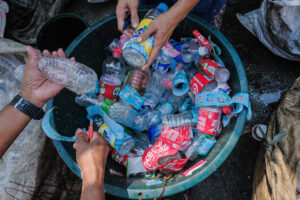THE Supreme Court (SC) ruled that disciplining children, which results in physical injuries, may be considered child abuse if there is a clear intent to harm a child’s dignity.
The court’s Second Division in a ruling published on Jan. 9 upheld that parents have the right to discipline their children, but this must not involve violence, excessiveness, or disproportionality to the child’s behavior.
“When the infliction of physical injuries against a minor is done at the spur of the moment or intended to discipline or correct the wrongful behavior of the child, it is imperative that the specific intent to debase, degrade, or demean the intrinsic worth and dignity of the child as a human be established,” the 13-page ruling penned by Justice Jhosep Y. Lopez read.
It added that without the specific intent to harm dignity, such actions may not amount to child abuse but could still be punishable under other provisions of the Revised Penal Code.
The case stemmed from the conviction of a father under the Special Protection of Children Against Abuse, Exploitation, and Discrimination Act (Republic Act No. 7610) for subjecting his two children to violent and excessive punishment.
The father claimed his actions were intended as discipline for misbehavior, such as skipping meals and taking money from their coin banks.
Lower courts, including the Regional Trial Court and the Court of Appeals, had earlier found the father guilty of child abuse under the law, which defines such acts as intended to “debase, degrade, or demean” a child’s dignity.
The father elevated the case to the SC, asserting he lacked intent to harm his children’s dignity.
The father was sentenced to four to six years in prison, fined P45,000, and ordered to pay P180,000 in damages to his children.
Meanwhile, the Commission on Human Rights (CHR) on Thursday lauded the newly established one-stop system for reporting of child rights violations, saying it cements the Philippines’ commitment to the United Nations Convention on the Rights of the Child.
“The Commission fully supports this initiative as it enhances the State’s obligation to protect the rights and welfare of children, as mandated under Section 2 of Republic Act No. 7610, the Special Protection of Children Against Abuse, Exploitation, and Discrimination Act,” it said in a statement.
“Furthermore, this initiative reaffirms the Philippines’ commitment as a State Party to the United Nations Convention on the Rights of the Child, which emphasizes that all actions concerning children should prioritize their best interests,” it added.
The Makabata program, created under Executive Order No. 79, facilitates age-appropriate and gender-responsive support, skills development, legal services, and alternative care placements for victims.
“The program further works on reintegrating children into their families and communities through after-care services, community support networks, and long-term monitoring to ensure continued protection and well-being,” the CHR said. — Chloe Mari A. Hufana and Kyle Aristophere T. Atienza
















